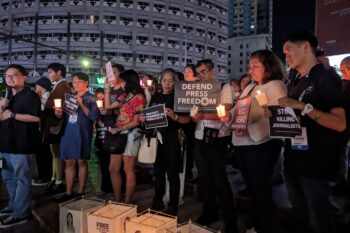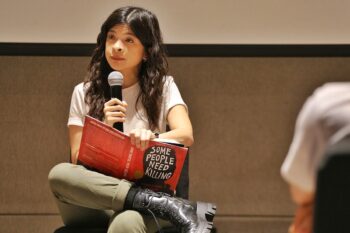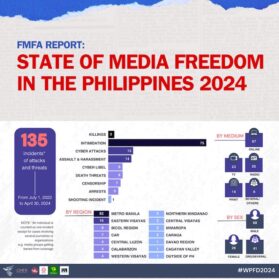CAGAYAN DE ORO CITY (MindaNews/27 August) — The MILF earlier issued its “11 General Features of the MILF comprehensive compact proposal” and the Government, in turn, countered with its “11 Characteristics of the government proposal.”
The lack of agreement is on the “means”
Both papers outlined and described their solutions to the Mindanao problem. After the Kuala Lumpur meeting, it is obvious that there is no agreement or consensus. The MILF described the gap as “heaven and earth” while the Government sees the gap as “not too far apart.” Is it a case of describing a glass of water as half-full or half-empty? Most probably.
If there is one thing that is certain, the clear lack of agreement by the parties is one on the “means” of achieving a set of outcomes. But with respect to ends and outcomes, I think that the parties are actually nearer to each other. This is an area where the parties can actually come up with a substantial agreement.
Design peace agreement by reverse.
Designing peace agreement is easier if done in the reverse. This means that the parties can move forward by articulating and agreeing first on a set of desired outcomes and then work backwards by designing the means of achieving those outcomes and coming up with clear indicators of determining whether those outcomes are attained or not. It is not too late to start with this fundamental step.
The negotiations have been ongoing for several years and yet a fundamental agreement on specific aims and outcomes have not been made. The parties presumed that there is an agreement on outcomes. There is actually none on paper. Although the fundamental agreement to craft a “comprehensive, just and lasting peace” has animated the talks, this is too general and too vague for purposes of negotiations.
When faced with an obstacle, do a sidestep.
Without rejecting any proposal and embracing the paradox of “heaven and earth” and “not too far apart,” one can actually see the possibility of the parties moving forward by agreeing on a set of peace of outcomes. This is not to “derogate” prior agreements but to do a “sidestep” in the meantime to avoid what seems to be a polarized situation. As they say, “Peace is like riding a bicycle. One has to continue pedaling in order not to fall.” On the other hand, we also need to guard that peace talks do not degenerate into a “paikot” scheme.
11 Peace Outcomes.
From my point of view as an outsider, the Government and MILF can agree on the following peace outcomes:
1. Correct the imbalance of totality of relationship between Filipinos and Moros.
2. Create mutual trust amongst peoples of our country.
3. Give recognition and justice to the ancestral homeland of the Moros.
4. Take into account the realities of underdevelopment, demographic shifts and diversity.
5. Give the Moros a modest share and taste of the remaining 7-9 percent of the lands, wealth and resources.
6. Deliver good and effective governance, social services and foster economic development as soon as possible.
7. Recognize the Moro aspiration for separate national identity while retaining their Filipino citizenship.
8. Maximize people’s creativity, resourcefulness, and initiative.
9. Include weapons disposal, disarmament, demobilization and rehabilitation of combatants.
10. Fruit of genuine public consensus.
11. Benefit not only Moros and the indigenous peoples, but also the Filipinos.
Designing by Outcomes
Once an agreement on peace outcomes is made, the parties can discuss ways and means to attain the outcomes. By doing this, the parties avoid the positional type of negotiations and really engage in problem solving. The parties can now evaluate each other’s proposal based on a external standard which they themselves created rather than just say agree or disagree. Furthermore, broader Philippine society can also contribute to finding solutions to attain the outcomes. After all, this is not just the problem of the MILF and the Government. (MindaViews is the opinion section of MindaNews. Lawyer Camilo “Bong” Montesa is the Executive Director of The Art of Peace Group which is dedicated to the search for innovative ideas for peace and conflict transformation).







